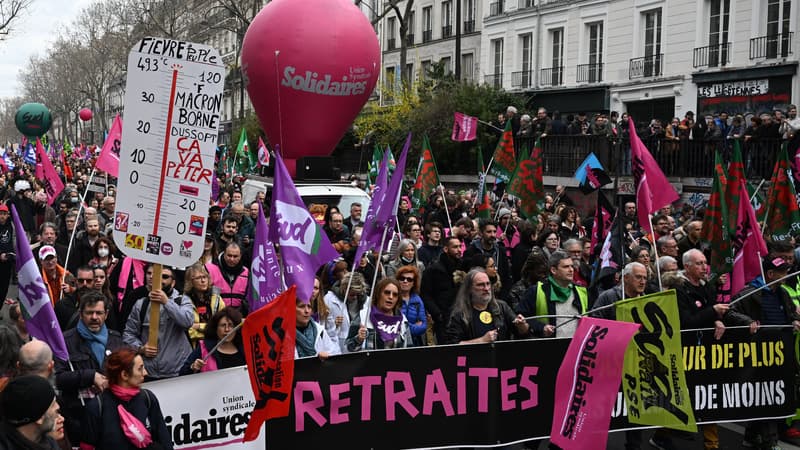This Thursday, April 6, marks the eleventh day of mobilization against the pension reform before the call of the inter-union. Almost three months after the beginning of the movement against the government project, which will be validated or not by the Constitutional Council on Friday, April 14, demonstrations are organized throughout the country. But the number of strikers in key sectors appears to be declining.
Thus, the SNCF foresees an improvement in traffic compared to previous days of mobilization. On the RATP side, traffic will be almost normal on the RER and Metro network “with the exception of some lines.”
In education, no unit calls a strike for this April 6. But the FSU-SNUipp, the leading trade union for kindergartens and primary schools, wishes “keep the pressure up“.
Between 600,000 and 800,000 protesters are expected
But if the strikers will be fewer in number compared to last week, it is expected that a large number of protesters will take to the streets this Thursday.
According to a territorial intelligence note dated April 4 that BFMTV was able to consult, between 600,000 and 800,000 participants are expected in the 340 actions organized throughout the country, including between 60,000 and 90,000 in Paris.
According to this same document, the largest provincial processions should be organized in Toulouse (17,500 expected people), Nantes (16,000), (Rennes and Lyon (15,000), Montpellier (12,500), Brest (12,000), Bordeaux and Grenoble (10,000) or even Saint-Nazaire (9,000).
In addition, 11,500 police and gendarmes will be deployed throughout the country, BFMTV of the Interior Ministry learned. In Paris, there will be 4,200 in total.
“Let’s go back up”
On the eve of this new day of mobilization, Prime Minister Elisabeth Borne met this Wednesday, for the first time since the beginning of the social movement, the inter-union.
A meeting that lasted less than an hour: the representatives of the unions left Matignon in the face of Elisabeth Borne’s refusal to withdraw the reform. “It is necessarily a failure when the Prime Minister does not open this discussion. So yes, it is necessarily a failure,” lamented the head of the CFTC, Cyril Chabanier, on behalf of the inter-union.
On BFMTV this Wednesday, Laurent Berger said he was optimistic about the new day of demonstrations. “March 7, 16 and 23 were the three days with levels of mobilization that had not been seen since the 1980s, he insisted. And then sometimes there are weaker moments because it weighs on the purchasing power of employees. And I think tomorrow we will begin to resuscitate,” he said.
Source: BFM TV


